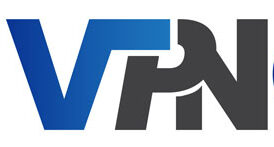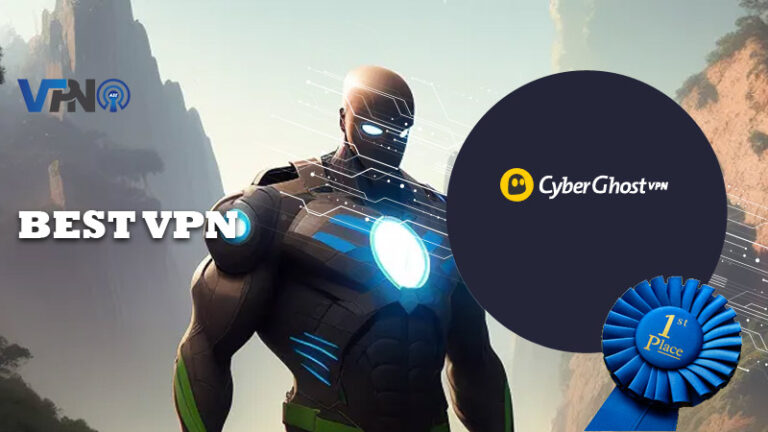What Security Risks Do You Face When Using a Public WiFi Connection?
What security risks do you face when using a public WiFi connection? Here are a few tips to protect yourself: Use a VPN (virtual private network) and create fake popups when connecting to public WiFi networks. Public WiFi networks are extremely popular, so hackers and attackers can easily exploit them to steal your credit card information or install malware on your device. By using a VPN to encrypt data going to and from your device, you will protect your sensitive data from being stolen.

2. PIA - Ton of servers world wide, but especially great in United States.***

3. NordVPN - The bigger the better! A great choice everywhere!***

4. ExpressVPN - Trusted by millions in over 180 countries!***

5. SurfShark - Amazing deal right now!***

6. PrivadoVPN - Exclusive deal - Cheapest 1 year deal online - ONLY through this link***

*** Offers money-back guarantee. So try them risk free!
Hackers can steal credit card information
The easiest way for hackers to access your credit card information is to hack into the point-of-sale computer. If you’re using a public Wi-Fi connection, your security is at risk. A skilled computer hacker can access the PoS computer by connecting to a Wi-Fi Hotspot. Wi-Fi connections are notoriously unsecure. A hacker can create a fake Wi-Fi signal to monitor your online activities, including credit card transactions. So never use your credit card on a public Wi-Fi connection.
Using fake websites and emails is also a common way for hackers to access credit card information. Fake emails impersonate legitimate sources. Phishing emails will claim to be from a business or financial institution and may even ask you to login to an account. These emails contain links that direct you to a fake site designed to capture sensitive information. Don’t click on these links or reply to suspicious emails – instead, call the bank and report the incident.
Another way for hackers to gain access to your credit card information is to pretend that you are using a legitimate public Wi-Fi network. Fraudsters often disguise legitimate public Wi-Fi networks as fake hotspots. Usually, these fake networks have similar names to popular hotspots. They will allow you to browse their sites, but they will also request your credentials to access the network. Before you connect to a fake network, ask a staff member to tell you what the name of the network is.
The best way to prevent hackers from stealing your credit card information from a public WiFi connection is to be vigilant and use encryption. Public Wi-Fi networks fail to use proper encryption, which leaves them open to hackers. In fact, according to Symantec, hackers can spy on you when you’re using them. The most popular use of public hotspots is for social media, email and bank accounts. These kinds of online activities are highly desirable to hackers.
Attackers can infect a WiFi connection with malware
The infected device can transmit the infection to other devices via the network, so it is important to use a security solution. However, if you do not use a security solution, the device could become infected with malware. This article outlines some of the most common ways to defend yourself against malware infection. It also includes a link to a free security solution. In this article, we’ll look at the steps you should take to protect your device.
First of all, you should know that attackers can infect a public WiFi connection with malicious software. The malware can modify or delete your personal files. It can even steal your credit card information. These infections enable hackers to steal your money and commit financial fraud. Once they have access to your card details, they can buy anything, apply for loans, and steal all of your private information. The attacker can infect a public WiFi connection with malware through fake pop-ups that appear on the screen. Once the malware has been installed, it can be used to monitor your browsing history, steal your login details, and more.
A public WiFi connection is not protected by a password. It’s open to hackers who place themselves between you and the connection point. They can also install malware on the device without your knowledge. Infected software can severely affect your business. As a result, it is important to keep your device updated. You should also ensure that your devices are not connected to unsecured networks, as this can lead to malware infection.
Using a VPN to encrypt data traveling to and from your device
If you’re unsure about whether using a VPN to encrypt data traveling from and to a public WiFi connection is a good idea, there are some factors that you should consider. A VPN will protect your internet traffic, which means hackers won’t be able to read your sensitive information. However, even with a VPN, public Wi-Fi networks are vulnerable to malware and viruses. That’s why it’s essential to protect yourself with anti-malware software. A good free VPN is Planet VPN, which is available for all major platforms and devices.
Using a VPN to encrypt your data traveling to and from a public WiFi network is recommended for those who frequently use the Internet. While using a public Wi-Fi network poses a security risk, it’s still better than having no VPN at all. VPNs are easy to use and don’t require any technical knowledge of computer connectivity or TCP/IP.
If you’re using a public WiFi connection, you’re exposing yourself to potential cybercrime. Your web activity is often tied to your local IP address, which your internet service provider can access. But when you use a VPN, your internet traffic travels through a secure server with a different IP address. This makes your online activity anonymous and makes it impossible for hackers to spy on you.
While you’re trying to protect yourself from these risks, don’t forget that a public WiFi connection can be hacked. Hackers can steal your personal information or gain access to your business network credentials by exploiting an unsecured Wi-Fi connection. It is also possible for the hackers to install malware onto your computer by sending a pop-up window.
Creating fake popups on public WiFi networks
Creating fake popups on public WiFi is not only annoying, it also exposes you to a security risk. In fact, hackers can modify the content of certain websites and even load child pornography onto your device! So, beware of any public WiFi network, no matter how legitimate it appears. Here are some ways to protect yourself from such risks:
One way to protect yourself from such threats is to always use a strong password when you log on to public WiFi. In addition to using strong passwords, you should make sure you don’t use your email address or other confidential information. The hacker can hijack your connection and log into your account and access all your personal information. Hackers tend to choose the path of least resistance, and creating fake popups on public WiFi networks is a prime target.
Another way to protect yourself is to use free WiFi as much as possible. Most public WiFi networks don’t require authentication, making them an easy target for hackers. Because there’s no authentication, hackers can access your data without your knowledge. Also, there’s a high risk of identity theft on free public WiFi networks. Hackers can also use open file-sharing networks to infect your device and collect personal information without your knowledge.
Using a VPN and making sure your antivirus program is up-to-date are other ways to ensure your security. A VPN is also recommended for public Wi-Fi networks. If you’re using public Wi-Fi, make sure it’s encrypted, and you turn off Wi-Fi when you’re not using it. Make sure you know the name of the network you’re using and don’t log in to sites that ask for sensitive information. This can be a huge security risk.
Using a firewall to secure a public WiFi connection
While many public WiFi networks provide some protection from cyber attacks, it does not always work. In some cases, a malicious hacker will use a specialized hardware tool to capture confidential information from a network. A man-in-the-middle attack is an example of this, where the attacker can use the same network as the victim to access private data. In these situations, the hacker can also use a public WiFi network to spy on you.
Encryption is another way to protect your information from third parties. Encryption is standard for professional networks. Unencrypted networks are easy to intercept and are open to third parties. Encrypted networks are safer because you can’t be certain of who’s watching your data. While encryption is ideal, many public WiFi networks don’t use it. If you’re using a public WiFi network, you’ll want to use a secure encryption key to protect your data.
Firewalls don’t provide high-end protection, but if you use them in conjunction with a VPN and anti-malware program, they can be quite effective. In addition, when using public WiFi, avoid browsing HTTP sites. HTTP sites are less secure than SSL, so you should not use them when you’re on a public network. To avoid being targeted by malware, be sure to disable the sharing feature on your device.
Free public WiFi is another common source of security risks. Hackers lurk around these networks and can access information on unsecured devices. If you are using free WiFi, be aware that hackers may use your passwords to steal personal information. By taking precautions, you can stay safe. However, you can’t be too careful. For example, hackers will use the connection password of the public WiFi network to gain access to your personal data.
VPN Comparison 2024
| Company | 1 Month | 6 Months | 1 Year | 2 Year | 3 Year | - |
|---|---|---|---|---|---|---|
| CyberGhost | $12,99 | $6,99 | - | $2,19 | - | Visit Website |
| NordVPN | $11,99 | - | $4,99 | $3,69 | - | Visit Website |
| PIA | $11,99 | - | $3,3 | 2024 Deal right now: $2,03 (Doesn't get cheaper!) | $2,03 | Visit Website |
| ExpressVPN | $12,95 | $9,99 | $8,32 | - | - | Visit Website |
| SurfShark | $12,95 | - | $3,99 | $2,49 | - | Visit Website |
| - | - | |||||
| PrivadoVPN | $10,99 | - | $2,50 | $3,99 | - | Visit Website |


